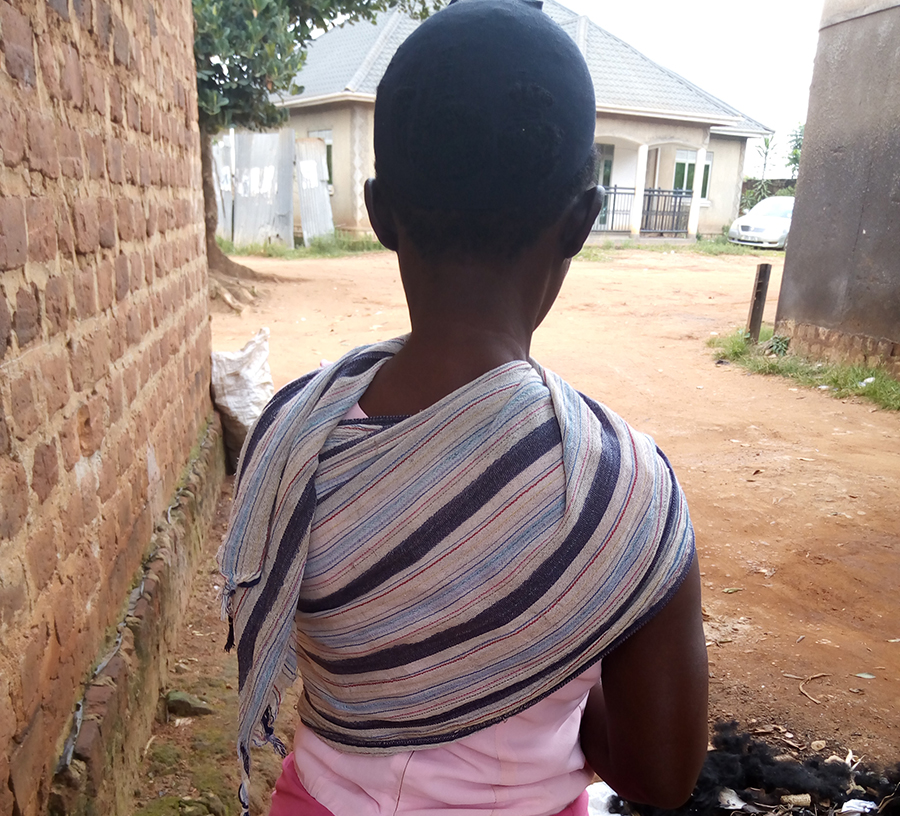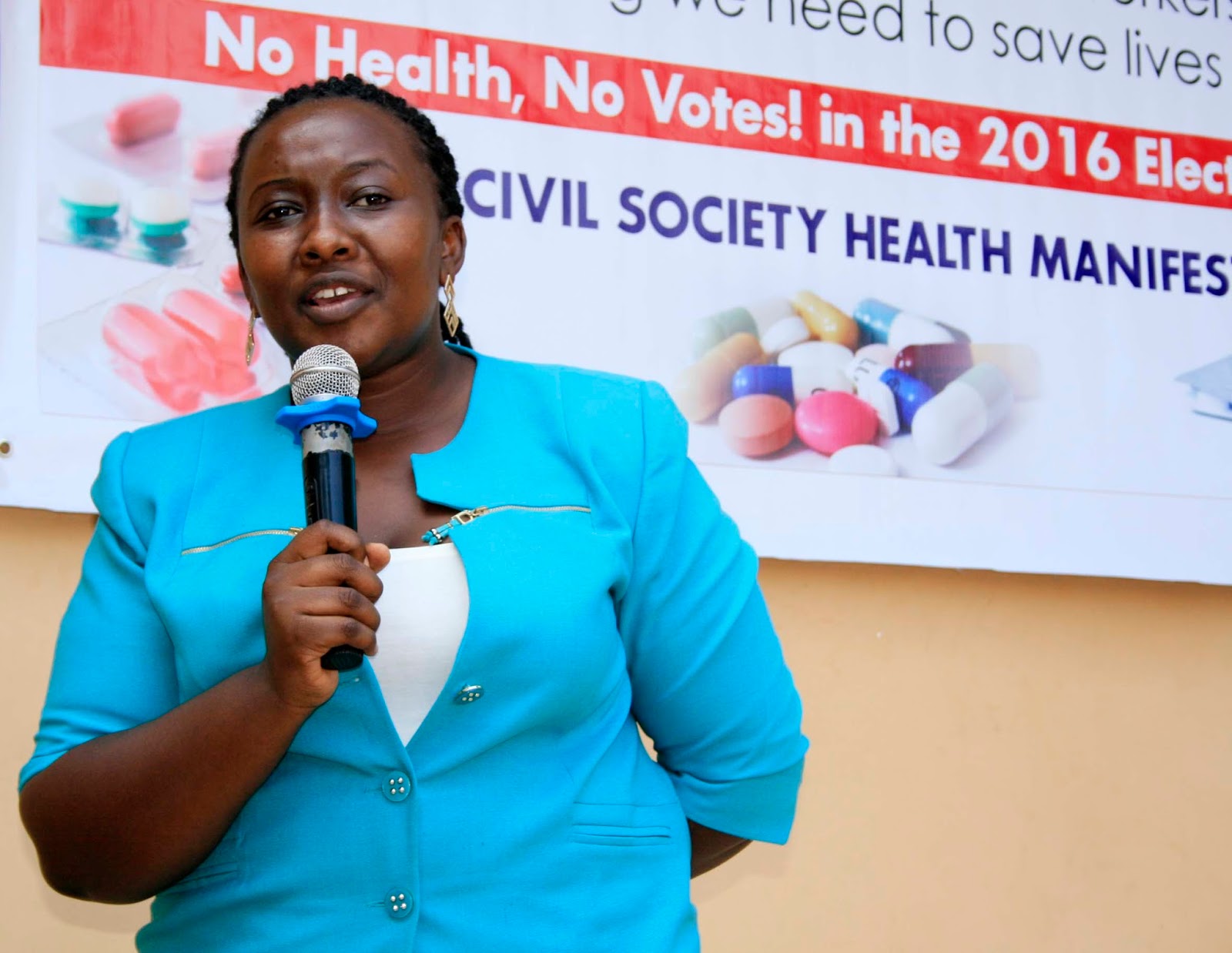Caught between Covid-19 and HIV/AIDS: "I thought I was going to die"
The first thing that Vianney Tomusange, 27, does when he wakes up every morning is to pray. He kneels down in one corner of his bedroom, clutches his rosary, and humbly asks God to give him a longer life.
And he should.
Tomusange, a resident of Nakubugo parish in Wakiso district is a single father who has been living with HIV/AIDS for the last 12 years.
Yet since the outbreak of the Covid-19 pandemic and the resulting lockdown it occasioned, his troubles have multiplied.
“When the president announced a lockdown, I had only a few ARVs left. They could take me for only one week,” he said, wiping beads of sweat off his eyebrows.
Before the lockdown, Tomusange, used to do casual work in Kampala city.
It was undefined. One day he would be unloading a truckload of goods, the next he would be running an errand for someone.
On a good day, he says, he would earn up to Shs 40,000 (roughly $10) but there are days when he could retire with Shs 5000 ($1.5).
With the Covid-19 lockdown and suspension of public transport, he could not go to town.
His only refuge was his two roomed house on the outskirts of the city.
“The truth is that the situation I am living in is not good at the moment. I am not working. I lost my job and I am now getting help from good Samaritans to support my family during this pandemic. I need food and if anyone can give me start up capital I would be grateful,” he said, his hands stretched out like a street beggar.
Tomusange says he has three children, one of them is living with HIV/AIDS.
A couple of months before the lockdown, Tomusange says he got misunderstandings with his wife, who left him.
“I don’t know where she is but I heard that she got married to another man,” he said his facial expression hardly disguising the fact that he was uncomfortable discussing this topic further.
During the first week of the lockdown, Tomusange says he soldiered on as he weighed his options.
The first option was to remain in town and somehow navigate through the hardships.
The second one, which appeared more alluring, was to go back to his village in Masaka district, where there is plenty of food.
The second option, he says, had one major hiccup.
“Where would I get the ARVs in the village?” he queried.
He settled for a middle ground.
He decided to send his children to the village while he stayed in town.
Because of the restrictions on public transport, Tomusange says, the children were taken by a truck driver friend of his, dead in the night.
Like a lone ranger, he decided to confront life in the city, alone.
"I thought of how I was going to feed my family but also I had appointment to collect my life-sustaining drugs at Kiruddu hospital in a few days,” he said.
Tomusange gets ARVs from Kiruddu hospital, Makindye division, in Kampala. He has been doing so for the last couple of years.
Before Covid-19, the process of getting the drugs for Tomusange was straight forward.
He would hop onto a commuter taxi and go to the hospital where under the veil of confidentiality, he would get the drugs.
The Covid-19 lockdown complicated matters.
“For one week I could not access my drugs because I could not walk to the hospital,” he said.
His health condition deteriorated and was lucky that a friend who owned a bicycle and knew his predicament came to his rescue.
With the easing of the lockdown towards the end of May, Tomusange says the situation has improved but other hardships persist.
For instance, he has not yet gotten the relief food that government said it would distribute to the vulnerable people in Kampala and parts of Wakiso district.
“To take my drugs I need to eat well. But I survive on leftovers from friends and neighbours. I need help,” he said staring blankly into space.
Matia Lubowa, a local leader in Tomusange’s village said people living with AIDs have been greatly affected during the Covid-19 period but most of them fear to come out.
They prefer to suffer silently due to the stigma attached to HIV/AIDS.
“They are even more than 30 in this village but the challenge is that most of them can not afford basic needs,” he said.
He called for a community-led response to challenges affecting people living with HIV/AIDS to fight stigma and discrimination and to ensure access to treatment.
“How can someone take medicine without eating food? By the way most of these people are jobless at the moment. They have children to take care of, so there many challenges they face daily,” Lubowa said.
NALULE’S PLEA: ‘DON’T EVICT ME’
“Where will I go this time? I have six children and feeding them is a big challenge. Now the landlord has been demanding rent fees and he is threatening to throw me out of the house. I don’t want to be evicted,” pleaded Agnes Nalule, a resident of Namagoma, Nsangi in Wakiso district, as she fixed her gaze on me.
Nalule’s pleas fell on deaf ears.
 Nalule
Nalule
I am not her landlord. I am just a journalist.
Yet she somewhat hoped that in exchange for the interview, I would at least plead with her landlord to go easy on his rent demand. I did.
Nalule is four months in rent arrears but more precariously, she is living with HIV/AIDS.
While she has rent arrears to clear, poverty to confront and other challenges that keep her awake at night, March 2020 came with a bigger worry: Covid-19.
Before the outbreak of the pandemic, Nalule a mother of 6 children, the youngest being seven months, used to survive by during small domestic chores for people in her neighbourhood.
Without work and with six other mouths to feed, she feels as if she is on the edge of life, itself.
“I don't have money to even buy my tablets. Remember I have to walk to Mulago hospital to get these drugs, see how weak I am,” Nalule said, looking sullen.
During the lockdown, Nalule has relied on a good Samaritan to have her drugs delivered.
“Without that help I think I would be dead,” she said.
Nalule’s husband, the sole breadwinner, died three years ago in a road accident leaving her helpless
To make matters worse, she said, some of her husband’s relatives took away the little property that they had accumulated such as a six-inch mattress.
This has left her depressed.
At times, Nalule says, she gets suicidal thoughts.
But when she thinks about what would happen to her children if she took her life, she backs off.
“My children are my life. I know one day I will be gone but I want them to have a good future,” she said as she held her seven months’ baby.
Uganda has been praised globally for the way it has handled the HIV/AIDS situation but latest figures show that 53,000 people contract HIV/AIDS every year.
Overall, according to UNAIDS, the UN agency responsible for the HIV/AIDS epidemic, at least 1.4 million Ugandans are living with HIV and 72% of these (700,000) are on treatment.
Government had envisaged that by 2020, at least 90% of all people living with HIV would access free treatment but this has not been possible because of inadequate resources.
Covid-19 appears to have stretched the resources further and shifted government’s focus.
Some experts have expressed concern that after the Covid-19 pandemic, there could be an upsurge in the number of people living with other health conditions such as HIV/AIDS, Tuberculosis, who at this moment appear to have been neglected.
What could have been done?
HIV/AIDS activists and other health experts that we spoke to said that government ought to have planned better, before it instituted the tough lockdown measures to ensure that people living with HIV/AIDS could readily access their medicine as well as treatment.
Dora Kiconco Musinguzi, the executive director of Uganda Network on Law Ethics and HIV/AIDS (UGANET) said the lockdown plan could have been revised early enough to cater for those living with HIV/AIDS and people with other conditions like tuberculosis.
“ARVs are essential life saving medicines. If a person has no access to these medicines either because they can’t move or doctors that would have given them the medicine also can’t move, this definitely creates a problem. Most hospitals were not functional [during the lockdown].
It was only later when they sent a circular and said those who deliver ARVs should move. But even, there was no public transport,” Musinguzi said.
 Dora Musinguzi, the executive director of UGANET
Dora Musinguzi, the executive director of UGANET
She said the financial impact of the Covid-19 lockdown on people living with HIV/AIDS meant that many could not eat well hence compromising their immunity further.
“ARVs and food go hand in hand and you know there is a strong correlation between HIV/AIDS and poverty. 70% of people with HIV/AIDS in Uganda are poor and government should be in position to plan for them well,” she said.
Sarah Nakku, the UNAIDS community mobiliser and networking adviser, said the ban on public transport affected this group of people because they couldn't easily access treatment in time.
“Some of them come from far. Some are not comfortable picking their treatment within a particular branch in their areas, so because of those issues, it was not easy for them to walk to the nearby health centres to access their treatment, she said.
Emmanuel Ainebyoona, a senior public relations officer in the ministry of Health acknowledged that at the start of the Covid-19 lockdown, government had prioritized the combating of the coronavirus, neglecting other epidemics.
Later however, he said, measures were taken to ensure that people living with HIV/AIDS and other health conditions were handled.
“Subsequently working with partners like Baylor Uganda, Mildmay, USAID and others, we came together and looked for creative ways to enable these people access their treatment. Some of the people were contacted through the Village Health Teams (VHTs) but I know some people could have got challenges,” he said.













